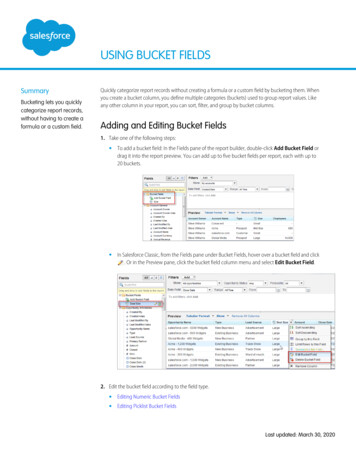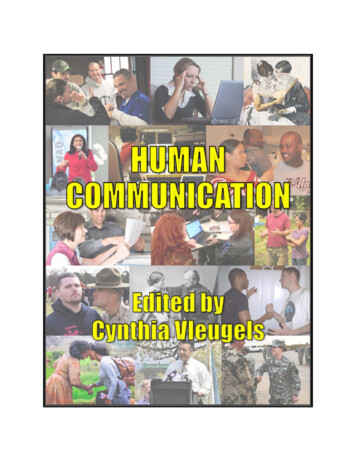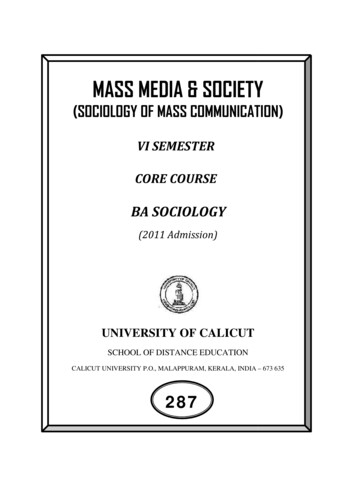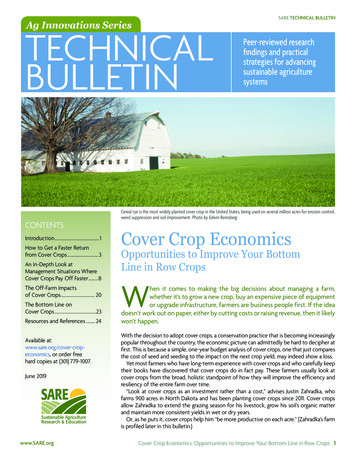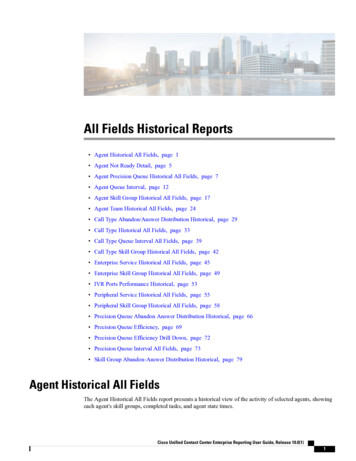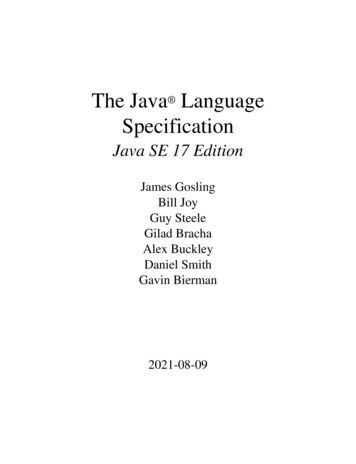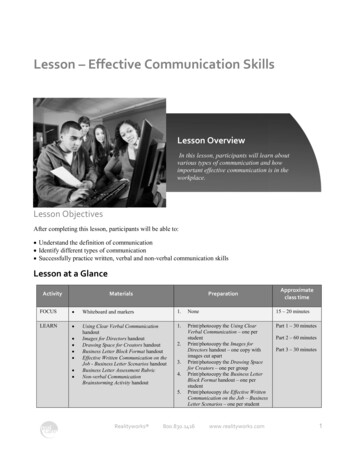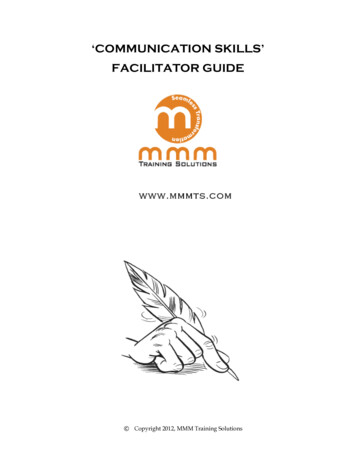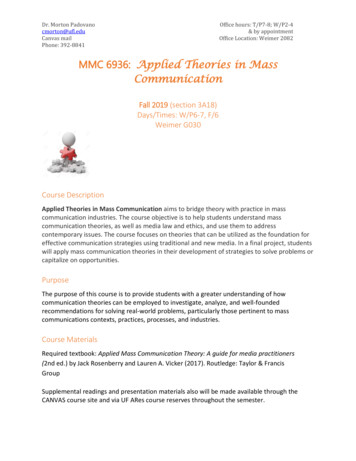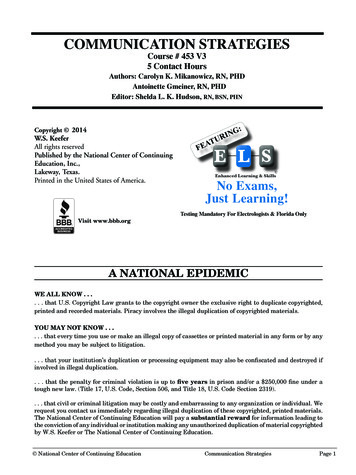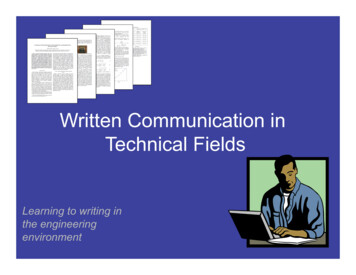
Transcription
Written Communication inTechnical FieldsLearning to writing inthe engineeringenvironment
Technical Writing: What is it?There are six major components to technical writing Basic LiteracyRhetorical LiteracyGrammar, spelling, organizationDoes your writing make sense?Are you addressing your audience(s)?Do you understand your viewpointrelative to the audience?Technological LiteracyAre you using the correct formatting?Are you using figures and tableseffectively?Critical LiteracyDo you understand the power structuresinvolved in your application and have anidea how to help those in need within theconstraints of these structures?Ethical LiteracyCan you explain your choices for thisterm paper topic/thesis?Have you considered all who areinvested in the term paper?Social LiteracyDirect (coauthoring) -- the executivesummaryIndirect -- brainstorming, discussion, etc
These six components are illustrated ina sample paper Basic LiteracyGrammar, spelling, organizationDoes your writing make sense?Technological LiteracyAre you using the correctformatting? Are you using figuresand tables effectively?Critical LiteracyDo you understand the powerstructures involved in yourapplication and have an idea howto help those in need within theconstraints of these structures?
These six components are illustrated ina sample paper Rhetorical LiteracyAre you addressing your audience(s)?Do you understand your viewpointrelative to the audience?Ethical LiteracyCan you explain your choices forthis term paper topic/thesis?Have you considered all who areinvested in the term paper?Social LiteracyDirect (coauthoring) -- theexecutive summaryIndirect -- brainstorming,discussion, etc
How do I make technical writing easier?Start with the Five-Minute Miracle Conversation It is a conversation in your mind between you and your readerWhat are you trying to tellyour reader?If you have to struggle to find the significance of your informationfor that reader, you are probably choosing the wrong main message.You couldUNDERWHELM or OVERWHELMyour reader
Now, let the “reader” ask you two criticalquestionsThink: What are the questions?Pair: How are you goingto answer the questionsin your paper?Example questions Why did you do this? What is the significance of the results?- Formulate rationale- Identify key figures &tables- Highlight significanceShare: Ask colleagues to review – did you answer the questions?
Let’s start with a simple class activityTask: Explain, in a single e-mail, to 5randomly selected people at the localsupermarket the importance of yourengineering curriculum.Think (the Five-Minute Miracle Conversation):What questions you are going to answer?Pair: Compare and write your e-mailShare (with the group):What were the questions you tried to answer?Did you address the questions in your e-mail?
So, you are still having problemsgetting started – some helpful hints ALWAYS START WITH AN OUTLINE! Write down primary ideas and sub-ideasfor each primary idea Convert this informal list to an outline CHANGE IT! Talk to someone about how to make yourtopic more interesting GET OVER IT! (Fix your motivation) Use some anxiety reduction strategies
So, you are still having problemsgetting started – some helpful hints Use known strategies to reduce your anxiety(music, breathing exercises, etc.) Consciously stop non-productive comments in yourhead Focus your energy on rehearsing what the writingwill feel/look like in your head once you get started Reward yourself for small steps Stretch, exercise, do something different (for a littlewhile) Breathe deeply, focus on relaxing Use calming images, any known technique forrelaxing yourself Reduce distractions
Writing ExerciseTask: Generate an outline of a 1-2 pageessay based on selected reading.Paragraph #1: Broader ideas that when distilled, become yourthesis (primary argument) at the end of the paragraph.Intermediate Paragraphs: typically use facts and quotations todescribe a single point in support of our argument (per paragraph)Concluding Paragraph: summarizes argument that led to provingthe thesis and re-unites the argument with issues relevant tocontemporary society.Share (with the group):Do they buy your thesis?Have you addressed all of the technical literacies?
Start with the Five-Minute Miracle Conversation It is a conversation in your mind between you and your reader What are you trying to tell your reader? If you have to struggle to find the significance of your information for that reader, you are probably choosing the wrong ma
